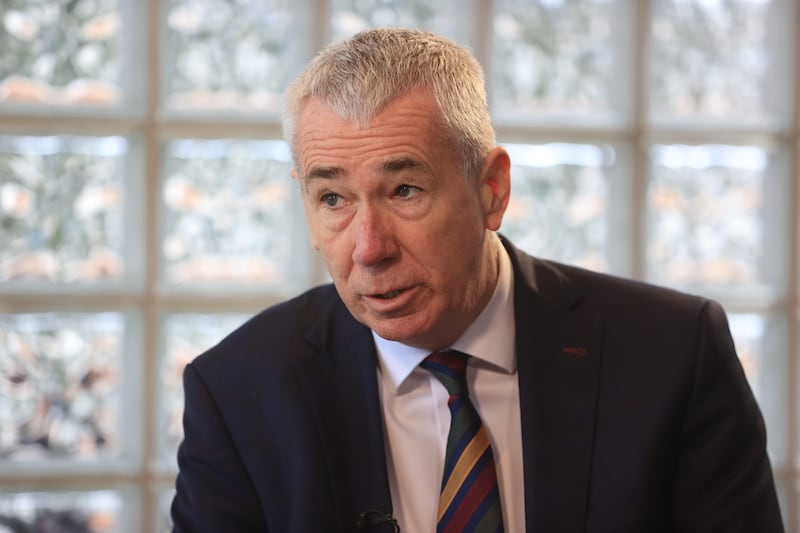Consultation has opened on the changes to rates relief to increase Government revenue, the Department of Finance has announced.
Proposed changes include the removal of the early payment discount and removing the maximum capital value cap.
The department was asked by the Northern Ireland secretary, Chris Heaton-Harris, to suggest options on revenue raising.
In the absence of a devolved government at Stormont, Mr Heaton-Harris set the budget for 2023/24, which left shortfalls for a number of departments in the hundreds of millions.
The @dptfinance has launched a 14-week consultation on a range of rates reliefs and allowances.
The department is seeking views from those who may be directly affected and from the wider body of ratepayers.
Read more ➡️ https://t.co/cchXIiYs27 pic.twitter.com/YQBtwWyRL4
— Dept of Finance (@dptfinance) November 7, 2023
There has not been a functioning assembly or executive for nearly two years due to the DUPs boycott of government in protest against post-Brexit trading arrangements.
Without elected ministers, permanent secretaries are having to make decisions on the revenue-raising schemes.
There are seven proposals for changes to rates relief – four in the non-domestic sector, and three in the domestic sector.
The largest proposed change is to the industrial derating scheme for manufacturers, which in 2023/24 is projected to cost the executive £71.5 million.
The removal of the non-domestic vacant rate relief is the second biggest measure, which currently awards 4,700 properties a 50% discount in rates at a cost of nearly £20 million.
The largest proposed domestic change to rates comes with the possible removal of the landlord allowance, which currently costs £14.2 million and gives landlords a 10% reduction if they pay their full rates bill by September 30 each year.
Ian Snowden, the chief executive of land and property services at the Department of Finance, said that all choices had “trade-offs”.
“The decisions that have been made here are in relation to what we consider the benefits of those reliefs to be,” he said.
“Industrial derating is one of those where it does cost quite a lot of money, but then also has quite obviously some significant benefits to the manufacturing sector.
“And politicians have to make those trade-offs.”
Mr Snowden added that the department is “acting under instructions from the Secretary of State”.
“So it was the Secretary of State who decided which ones he wanted us to consult on, and those are the schemes that we’re looking at currently,” he said.
Mr Snowden said all departments would be working to make a “significant contribution” to revenue raising.
“Revenue-raising measures would have some impact on the financial situation, but the measures that we’re proposing as part of the rates consultation certainly wouldn’t meet the entirety of the budget shortfall in Northern Ireland,” he said.

“Of course, other departments have been asked to have a look at some other measures which they might be able to take in terms of revenue raising. All of those put together will make a significant contribution towards the financial position.
“But overall, the financial position of Northern Ireland still requires quite a lot of work to be done around the sum of the money that’s available and how that’s actually brought into Northern Ireland.”
The consultation will further discuss removing a maximum value cap on rates in Northern Ireland which means that any property worth over £400,000 pays the same rate as a property worth £400,000.
Another domestic measure under review is the removal of the early payment discount for rates, which currently costs £7.9 million.
The Department is seeking views from those who may be directly affected and from the wider body of rate payers.






